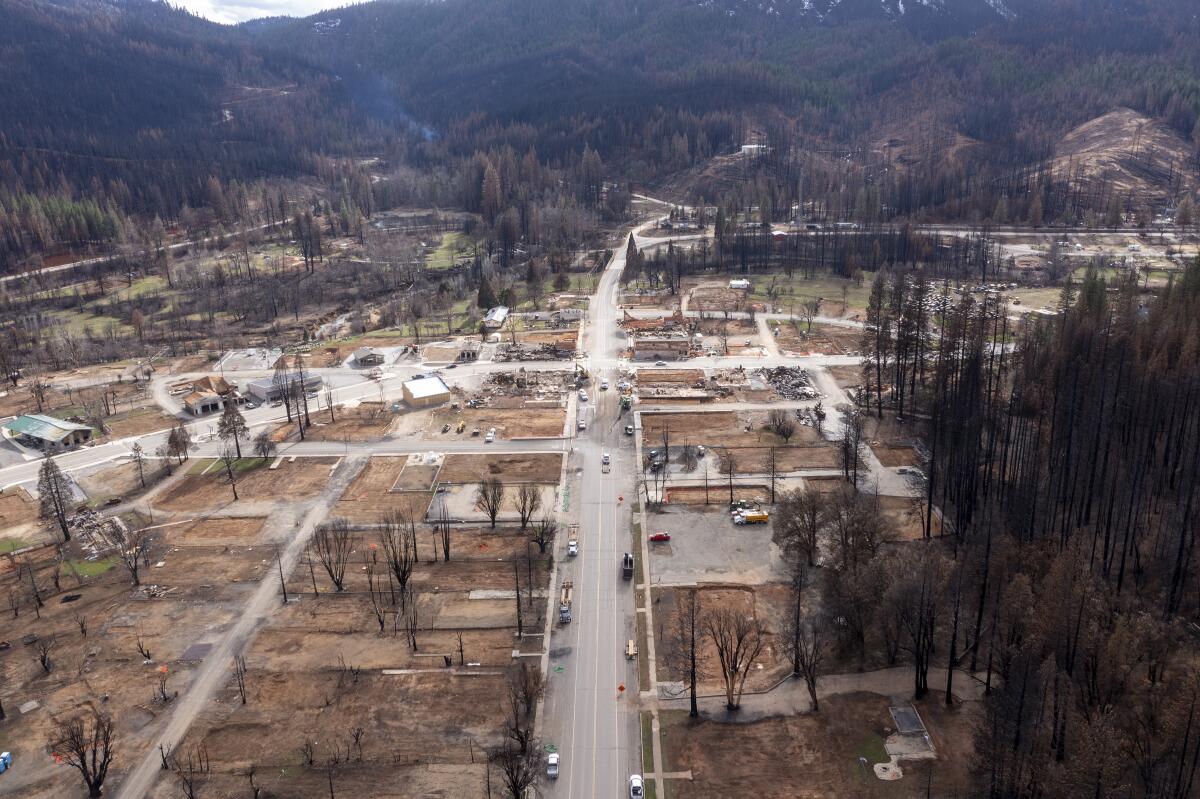Letters to the Editor: Save the planet? Earth will survive climate change; humans, maybe not

To the editor: As someone who works in sustainability and daily tries to think of better ways to communicate the urgency of global heating, I think one small change would help a lot — stop saying “save the planet.” (“The world is running out of time to blunt climate change. Where’s the urgency?” editorial, April 5)
“Save the humans” would be a far more apt appeal. Earth will be fine at almost any temperature. It’s humanity that can only exist within the very narrow temperature band we’ve enjoyed since developing an opposable thumb.
We know from fossil records the average surface temperature has ranged from freezing 650 million years ago to upward of 90 degrees as recently as 250 million years ago. Today’s surface average is in the middle at 57 degrees. Different species rose and fell along with those temperatures, and Earth kept on spinning.
Asking people to save the planet appeals to their better nature, but asking them to save themselves may loop in a lot more participants.
Paul Kradin, Santa Ynez
..
To the editor: We’ve heard about climate change and the danger of atmospheric warming from carbon emissions for more than 50 years, though fossil fuel corporations have done an excellent job of suppressing this knowledge.
Why do we go on as if the greatest crisis in human history doesn’t concern us? After teaching 53 years, I know why. It seems impossible that a two-degree rise in temperature could do much damage, or that vehicle exhaust doesn’t just float into outer space.
We have failed to teach generations of children how nature must maintain balance. Most people don’t understand how to keep the Earth alive, although the solution is obvious: Fossil fuel emissions must stop now.
Climate literacy is finally being required in schools all over the country. Our survival depends on understanding this danger.
Norah Cunningham, Pacoima
..
To the editor: I would add carbon capture to the emergency options for our survival. That, of course, is the process of removing the deadly greenhouse gases we have been putting into the atmosphere.
I am aware that many enthusiasts for carbon capture are weak in their support of substituting renewable energy for fossil fuels. Further, no very convincing methods of capturing carbon and dealing with it afterward have thus far appeared on the scene. But I also doubt any all-out, well-funded effort has been put forth.
There are so many wonderful surprises in the history of science and technology; I think we need to stretch in that direction, especially when it appears that our efforts with renewables have little chance of reaching the required level in time.
Peter Devereaux, Long Beach







